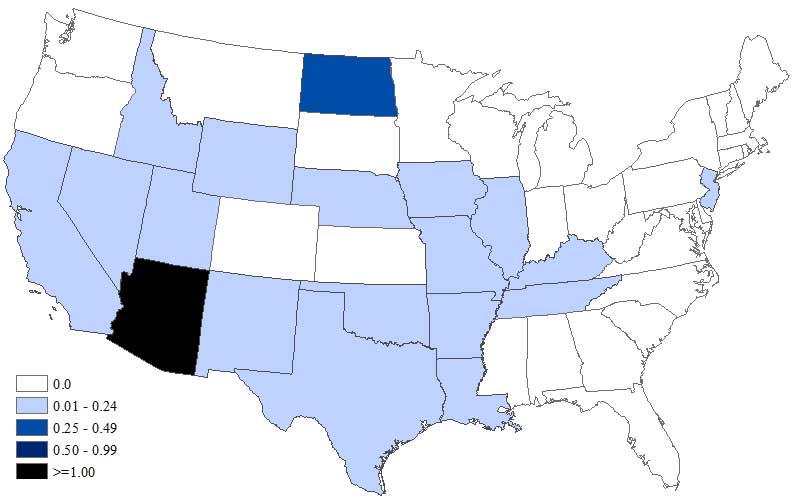West Nile left man down, but not out
More than 3 years after contracting virus, Clay continues to gain strength
By MARY PICKETT
Of The Gazette Staff
Life didn't turn out as Kenneth "Pete" Clay expected the past few years, but it's better than it could have been.
After contracting West Nile virus in August 2003, he nearly died.
Even after surviving the mosquito-borne illness, the former cowboy and ranch hand faced a long road.
Clay, now 73, developed the most severe form of the disease, which caused an inflammation of his brain and spinal cord and left his right leg paralyzed and his left leg severely weakened. During the 48 days that he was in St. Vincent Healthcare, he lost 30 pounds because he had difficulty eating most foods.
After Clay came home, the virus had sapped him of so much strength that he was too weak to turn over in bed. His wife, Marilyn, had to turn him over several times during the night to make certain he didn't get bed sores.
Eventually, Clay gained enough strength to start physical therapy in Billings, do regular exercises at home and get around in a wheelchair. He also regained most of the weight that he lost.
Now, he's able to walk with a full leg brace on his weaker right leg and a short brace on his left ankle.
He almost can walk with just one cane, but still needs the second one for balance.
Balance has been the hardest part of his recovery, he said.
His right leg is slowly getting stronger and has a wide range of motion.
"It's coming around," he said.
Most days, he exercises by working on a pedal exerciser and cardio glider.
Asked if he's still making progress, he said, "I believe I am."
"At my age, a lot of people are losing (physical strength)," he said. "If I'm holding my own, I'm doing well."
This summer, he pulled weeds in the large yard around his Hysham home, tended tomato and pepper plants and split kindling wood. He also helps Marilyn wash the dishes.
He has a special pedal on his automatic-drive pickup that allows him to drive short distances around town.
"I get out and do what I can do," he said.
Neighbors have been a big help by bringing heavier pieces of wood to his porch and hauling away some of his garbage.
Getting West Nile is aggravating, he said, but "your life doesn't end."
Early on, he decided to forgo dismal thoughts about his situation.
"I was lying in the hospital recovering and going over things in my mind," he said.
He could feel sorry for himself, he thought, then realized that he had to accept what had happened and go on with his life.
In addition to Marilyn, a major factor in his recovery was the help he received from physical therapist Rose Heeg.
"She's tops in my book," he said.
Attitude is 90 percent of recovery, she told him early on. A positive attitude helped Clay exceed even what Heeg had hoped for.
When Clay asked Heeg how far she had expected him to progress, she told him that they had wanted him to become strong enough to get around in a wheelchair.
"I didn't have long-term plans to spend the rest of my life in a wheelchair," he said.
Contact Mary Pickett at mpickett@billingsgazette.com or 657-1262.
Editor's note: "What Ever Happened to ... ?" is a new feature updating Gazette readers on people, places or things that were in the news in recent months. If you have a topic you would like to see revisited, let us know at 657-1251 or citynews@billingsgazette.com.
Published on Thursday, December 28, 2006.
Last modified on 12/28/2006 at 12:31 am
Copyright © The Billings Gazette, a division of Lee Enterprises.


